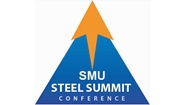Product

September 4, 2018
Trade Debate: What’s in the Nation’s Best Interest?
Written by Tim Triplett
What is in the nation’s best interest when it comes to international trade? Are the Trump administration trade policies the best approach? Speaking at the Steel Market Update Steel Summit Conference in Atlanta on Aug. 27, a spokesperson for the domestic steel industry and a Washington trade attorney offered sharply contrasting views.
The Steel Manufacturers Association (SMA), which represents EAF steel producers in the United States, is a strong supporter of President Trump’s trade policies, including the controversial Section 232, which the administration has used to justify tariffs on steel and aluminum imports from all but a few nations in the name of national security.
Addressing the conference crowd, Jean Kemp, SMA senior vice president of government affairs and trade policy, defended Trump’s tariffs. “While U.S. industry won AD/CVD relief from direct steel imports from China, circumvention, fraud and evasion through many countries have undermined U.S. relief,” she said.
Chinese overcapacity is the source of the world’s ongoing steel problem, she said. China produces more than 900 million metric tons per year or nearly 53 percent of the world’s steel, but consumes 650-750 million tons. The difference often gets dumped on the world market.
China contends it is addressing its overcapacity by shuttering obsolete and highly polluting steel facilities. “Unfortunately, in the first half of 2018, we still saw a big increase in Chinese output,” Kemp said.
Steel imports still hold nearly a 30 percent share of the U.S. market. While that is down from the peak of 34 percent in 2014, it is still an impediment to U.S. capacity utilization, which is now around 77 percent. “In the past 10 years, U.S. steel capacity utilization has been at a chronically low level. The optimal rate is in excess of 85 percent in a good year. You need those good years to make up for the bad years that come along occasionally,” Kemp said.
For years, governments have used bilateral talks with China, multilateral efforts through the G20 and Global Forum on Excess Capacity and other traditional diplomatic means to address the overcapacity crisis. SMA supports the Trump administration tactics in the hope they will finally achieve meaningful reductions in uneconomic steelmaking capacity and combat government subsidies and other market-distorting policies. “Excess capacity and unfair trade practices contribute to the threat to national security,” Kemp asserted.
She pointed to recent steel industry investments as proof the administration’s trade policies are working. They included: a blast furnace restart at USS Granite City, upgrades to the galvanizing line at SDI’s Mississippi mill, and Nucor’s new bar mills in Missouri and Florida, among others.
“The current state of steel has improved. Section 232, tax cuts, deregulation and strong demand all bode well for U.S steel market players,” Kemp said.
Washington trade attorney Lewis Leibowitz believes Section 232 has been misapplied by the Trump administration and that the current trade situation does not pose a serious threat to the U.S. steel industry or to national security. “In the past, the country with the biggest steel industry won. The steel industry is not like that anymore. It is not the linchpin to our national defense. If the country with the biggest steel industry won today, we would all be speaking Mandarin,” he said.
The tariffs have inflated the cost of steel and are causing significant harm to American manufacturers, he added. “We are forgetting that there are 16 workers in this country in steel-consuming industries for every single steelworker. We are ignoring them.”
The current steel situation does pose a threat to U.S. national security, Kemp countered. “If you don’t have a steel industry that is strong enough to produce the products that you need for military purposes and also critical infrastructure, you don’t have a strong national defense.” The world trade system was not prepared for the rise of China, she added. China became a member of the WTO, yet continued to blatantly disregard international trade rules. “I agree that negotiation and finding a way forward cooperatively with other nations is essential, but it is not like that has not been tried before by previous administrations. We hope that the approach by the current administration will lead to some serious changes in China and other countries working with us to address these structural problems.”
Leibowitz expressed skepticism that the Trump administration tariffs will significantly change Chinese behavior. He also voiced doubts about current trade policies leading to long-term investment in new steel capacity in the U.S.
Rerolled slabs account for nearly 20 percent of domestic coil production. Yet, the Trump steel tariffs apply to imports of slabs, making it difficult for rerollers to get the raw materials they need. Does that not invite more flat rolled imports? “The point is we need more hot ends with the ability to supply that slab demand in the future,” said Kemp.
“The same number of BOFs will be built as a result of the tariffs as were built since 1962…zero,” responded Leibowitz, as scrap-based EAF production has become the dominant technology.
He concluded: “Trade should not be an instrument of conflict but an instrument of cooperation. When goods cross borders, armies don’t. Trade is a positive, it lifts all boats. We need a system that allows for growth and prosperity for everyone.”







